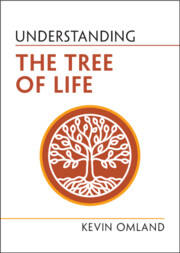Book contents
- Understanding the Tree of Life
- Series page
- Understanding the Tree of Life
- Copyright page
- Reviews
- Epigraph
- Contents
- Foreword
- Preface
- Acknowledgments
- 1 Introduction to the Tree of Life: Drawing Trees and Why There Is No Trunk
- 2 Human Origins: We Are African … Mostly
- 3 Primates: Our Closest Living Cousins
- 4 Which Mammals Are the Most Primitive? None of Us
- 5 Birds Are Reptiles, Birds Are Theropod Dinosaurs
- 6 The Crawl Onto Land: Tetrapod Evolution and the Gain and Loss of Limbs
- 7 Which Fishes Are “Primitive”? Do Fish Even Exist?
- 8 Animal Evolution: Sponges and Comb Jellies Are Our Cousins
- 9 Plants, Animals, Fungi, and “Protists”: We Are Eukaryotes
- 10 Archaea Then Bacteria Are Our Most Distant Cousins
- Concluding Remarks: The Success, Importance, and Conservation of All Life
- Summary of Common Misunderstandings
- References and Further Reading
- Figure Credits
- Index
5 - Birds Are Reptiles, Birds Are Theropod Dinosaurs
Published online by Cambridge University Press: 19 September 2025
- Understanding the Tree of Life
- Series page
- Understanding the Tree of Life
- Copyright page
- Reviews
- Epigraph
- Contents
- Foreword
- Preface
- Acknowledgments
- 1 Introduction to the Tree of Life: Drawing Trees and Why There Is No Trunk
- 2 Human Origins: We Are African … Mostly
- 3 Primates: Our Closest Living Cousins
- 4 Which Mammals Are the Most Primitive? None of Us
- 5 Birds Are Reptiles, Birds Are Theropod Dinosaurs
- 6 The Crawl Onto Land: Tetrapod Evolution and the Gain and Loss of Limbs
- 7 Which Fishes Are “Primitive”? Do Fish Even Exist?
- 8 Animal Evolution: Sponges and Comb Jellies Are Our Cousins
- 9 Plants, Animals, Fungi, and “Protists”: We Are Eukaryotes
- 10 Archaea Then Bacteria Are Our Most Distant Cousins
- Concluding Remarks: The Success, Importance, and Conservation of All Life
- Summary of Common Misunderstandings
- References and Further Reading
- Figure Credits
- Index
Summary
Outside of our fellow mammals, our next closest relatives are reptiles. As both birds and mammals are warm blooded (endothermic) and have four-chambered hearts, one might be tempted to think that the sister group to mammals would be birds. But the story is much more complicated than that, especially because birds are actually reptiles.
Reptiles include four main lineages: (1) turtles, (2) lizards and snakes, (3) crocodilians, and (4) dinosaurs, including birds. Indeed, birds are reptiles – birds are a surviving lineage descended from bipedal predatory dinosaurs! In decades past, there were five “classes” of vertebrates (animal groups with backbones): fishes, amphibians, mammals, reptiles, and birds. In fact, many basic treatments still list these groups. For example, Encyclopedia Britannica still has an article entitled: “Five Vertebrate Groups.” But there are major problems with two of these old groups: neither fishes nor scaly reptiles are monophyletic.
Keywords
Information
- Type
- Chapter
- Information
- Understanding the Tree of Life , pp. 83 - 107Publisher: Cambridge University PressPrint publication year: 2025
Accessibility standard: WCAG 2.0 A
Why this information is here
This section outlines the accessibility features of this content - including support for screen readers, full keyboard navigation and high-contrast display options. This may not be relevant for you.Accessibility Information
Content Navigation
Allows you to navigate directly to chapters, sections, or non‐text items through a linked table of contents, reducing the need for extensive scrolling.
Provides an interactive index, letting you go straight to where a term or subject appears in the text without manual searching.
Reading Order & Textual Equivalents
You will encounter all content (including footnotes, captions, etc.) in a clear, sequential flow, making it easier to follow with assistive tools like screen readers.
You get concise descriptions (for images, charts, or media clips), ensuring you do not miss crucial information when visual or audio elements are not accessible.
You get more than just short alt text: you have comprehensive text equivalents, transcripts, captions, or audio descriptions for substantial non‐text content, which is especially helpful for complex visuals or multimedia.
Visual Accessibility
You will still understand key ideas or prompts without relying solely on colour, which is especially helpful if you have colour vision deficiencies.
Structural and Technical Features
You gain clarity from ARIA (Accessible Rich Internet Applications) roles and attributes, as they help assistive technologies interpret how each part of the content functions.
